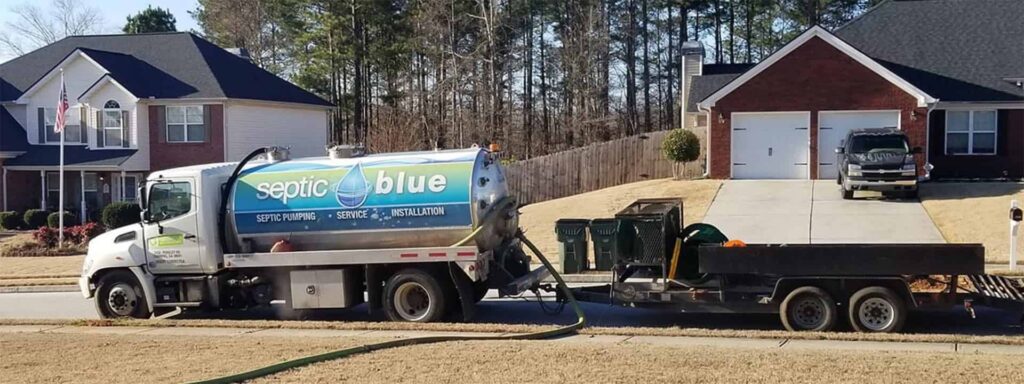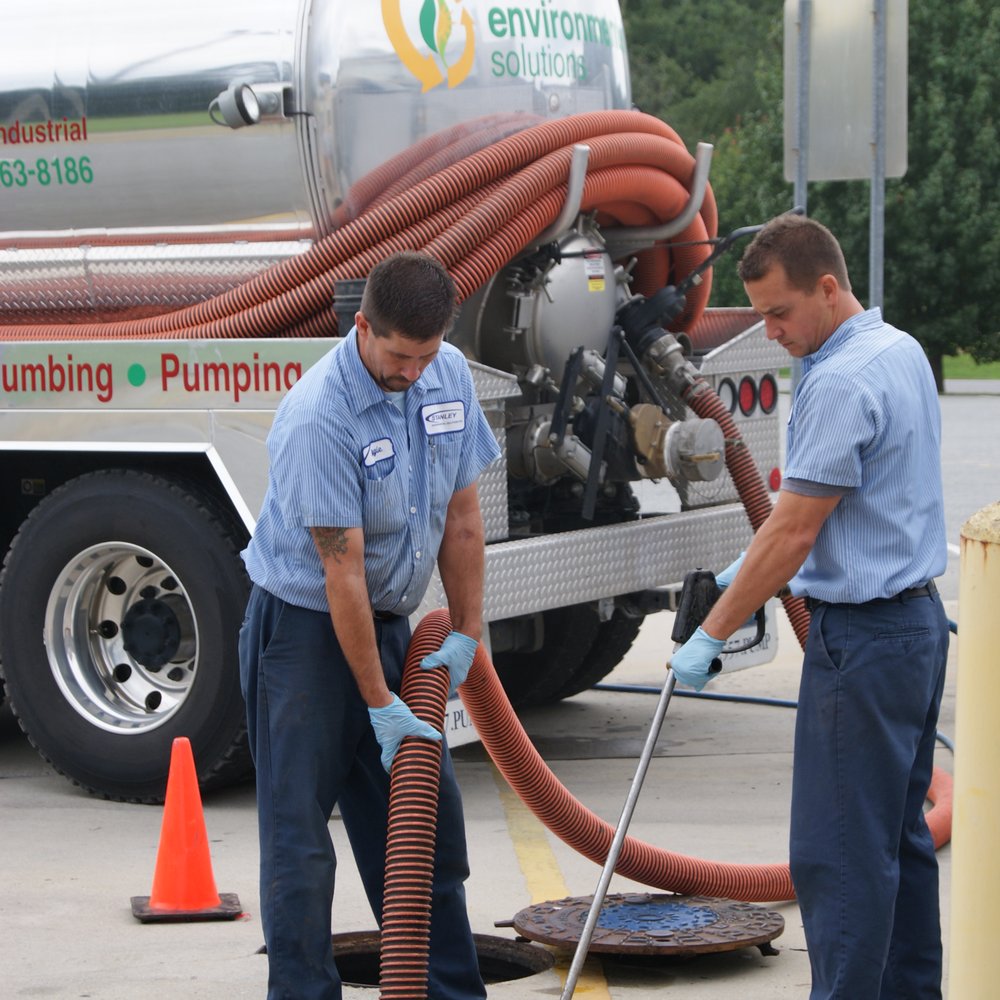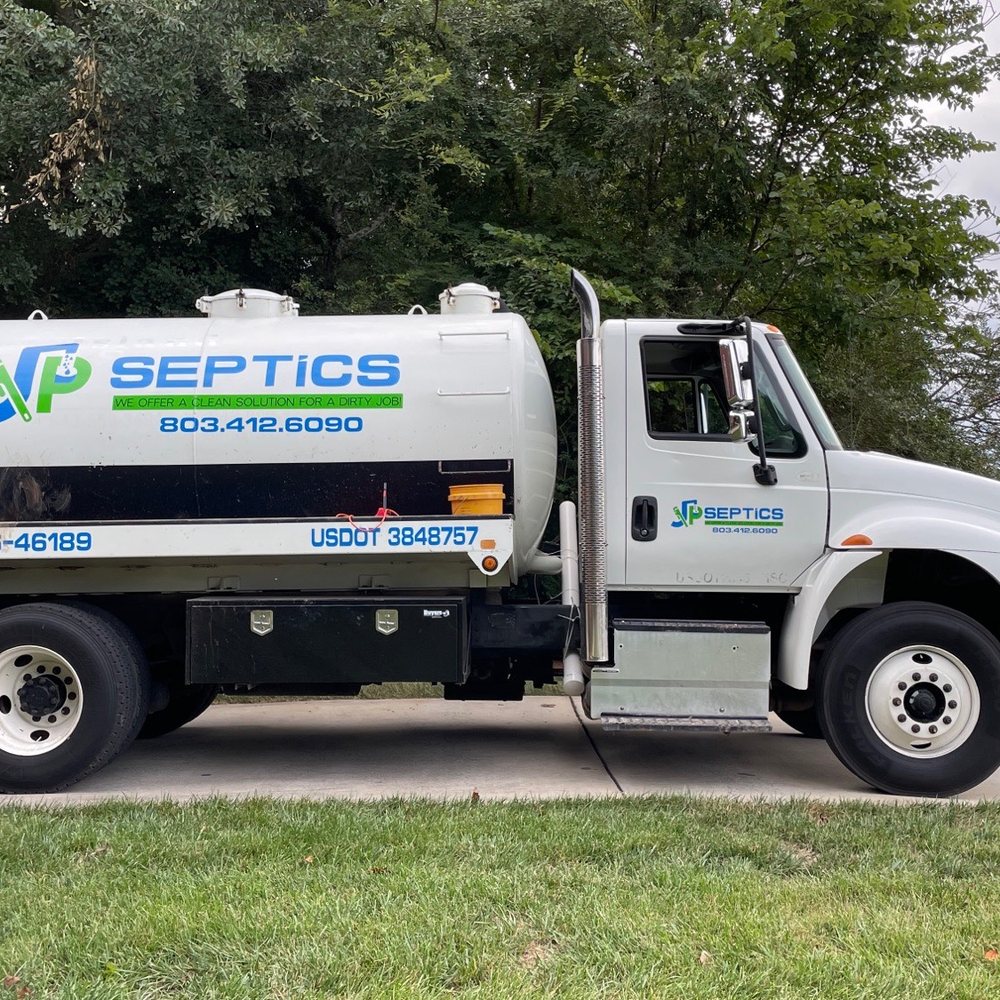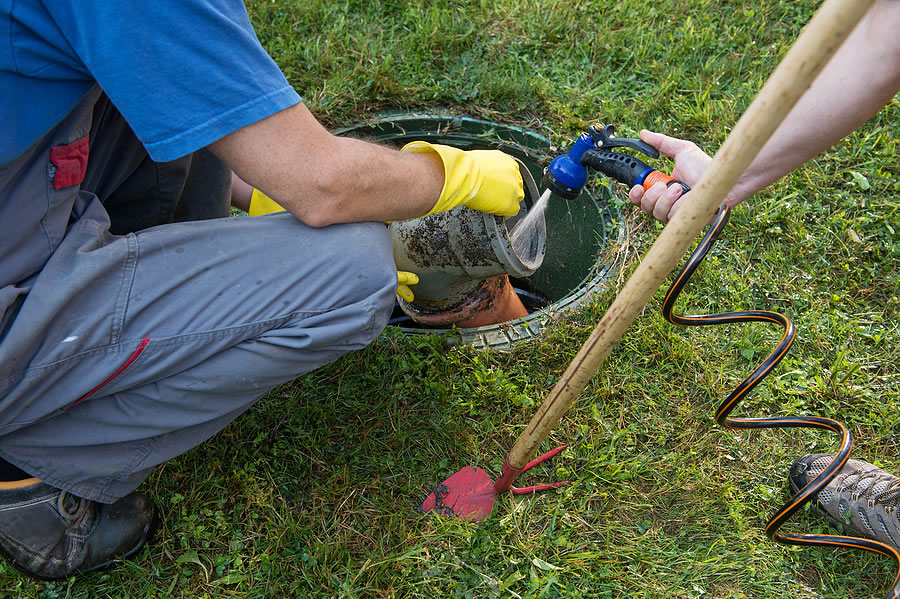If you own a septic tank in Huntersville, it’s crucial to understand the importance of regular maintenance. Septic tank pumping is a vital aspect of keeping your system running smoothly and preventing costly repairs down the line. With our comprehensive septic tank pumping services in Huntersville, you can ensure that your system is properly maintained, avoiding any potential issues and prolonging its lifespan. Trust our experienced technicians to handle all your septic tank pumping needs, providing you with peace of mind and a well-functioning system for years to come.

Importance of Septic Tank Pumping
Preventing System Failure
Regular septic tank pumping is essential to prevent system failure. Over time, solid waste accumulates in the tank, creating sludge and scum layers. If these layers are not periodically removed, they can clog the system, leading to backups, blockages, and even complete system failure. By pumping the septic tank on a regular basis, you can ensure the efficient flow of wastewater and prevent any potential problems.
Maintaining Healthy Drainage
Properly maintained septic tanks allow for the effective drainage of wastewater. When the tank is not pumped regularly, the accumulated solids can enter the drainfield, clogging the soil and inhibiting the natural filtration process. This can lead to contaminated groundwater, foul odors, and potential health hazards. By pumping the tank at the recommended intervals, you can maintain the healthy drainage of wastewater, protecting both your property and the environment.
Avoiding Foul Odors
One of the most unpleasant consequences of neglecting septic tank maintenance is the emergence of foul odors. As the solids in the tank break down and release gases, these odorous gases can permeate your property, causing discomfort for you and your neighbors. Regular septic tank pumping helps to eliminate these foul odors by preventing the buildup of waste materials that produce the offensive gases. By keeping your septic system well-maintained, you can enjoy a fresh and odor-free environment.
Frequency of Septic Tank Pumping
Factors Affecting Pumping Frequency
Several factors affect the frequency at which you should pump your septic tank. The size of your household, the volume of wastewater generated, the tank’s capacity, and the soil’s absorption rate are some key considerations. A larger household with more residents will produce more waste and require more frequent pumpings. Additionally, if your septic tank is undersized, you may need more frequent pumpings to prevent overloading the system. The type of fixtures and appliances in your home can also influence pumping frequency. For example, using a garbage disposal increases the solid waste load in the tank. Lastly, the soil’s ability to absorb the effluent determines how quickly the tank fills and when it needs to be pumped.
General Guidelines for Pumping Frequency
While the specific pumping schedule for your septic tank depends on the aforementioned factors, there are some general guidelines to follow. On average, most households should have their septic tanks pumped every 3 to 5 years. However, this is merely a starting point and should not be considered a one-size-fits-all approach. Consulting a professional septic tank pumping service is crucial, as they can assess your specific circumstances and provide a more accurate recommendation. Remember that regular maintenance is key to maximizing the lifespan of your septic system and preventing costly repairs.
Signs that Your Septic Tank Needs Pumping
Slow Draining Fixtures
If you notice that your sinks, showers, or toilets are slow to drain, it may be an indication that your septic tank needs pumping. As the tank fills with solid waste and the layers of sludge and scum increase, the flow of wastewater can become restricted. This can result in slow drainage or even complete blockages in your plumbing system. If you experience persistent slow draining fixtures, it is essential to have your septic tank inspected and pumped to restore proper functionality.
Foul Odors
Unpleasant odors emanating from your drains, toilets, or yard can be a clear sign that your septic tank is in need of pumping. The accumulation of solid waste in the tank produces harmful gases with a distinct, unpleasant smell. These gases can escape through the plumbing fixtures or even seep into your yard, causing a foul odor. If you detect persistent odors that you can’t trace to any other source, it’s essential to have your septic tank pumped as soon as possible to eliminate the root cause.
Pooling Water in Yard
Pooling water in your yard, especially around the drainfield area, can be an indication that your septic tank is full and needs pumping. When the tank reaches its capacity and cannot hold any more wastewater, the excess liquid can overflow and saturate the drainfield. This can lead to soggy or flooded areas in your yard. If you observe pooling water or excessively wet areas near your septic system, it is crucial to contact a professional septic tank pumping service to address the issue promptly.
Choosing a Professional Septic Tank Pumping Service
Certifications and Licenses
When selecting a septic tank pumping service, it is important to ensure that they possess the necessary certifications and licenses. Professional certifications demonstrate that the technicians are trained and knowledgeable in septic system maintenance. Licensing ensures that the company meets the local regulatory requirements and follows industry best practices. By choosing a certified and licensed septic tank pumping service, you can have confidence in their expertise and the quality of their work.
Experience and Expertise
Experience and expertise play a crucial role in the septic tank pumping process. An experienced service provider will have a thorough understanding of different septic systems and their specific requirements. They will be able to efficiently locate and access your septic tank, perform a thorough inspection, and complete the pumping process with expertise. When considering a septic tank pumping service, look for companies with a proven track record and positive customer reviews to ensure you’re selecting a reliable and knowledgeable team.
Reviews and Recommendations
Before making a decision, take the time to research and read customer reviews and recommendations for the septic tank pumping services you are considering. Reviews provide valuable insights into the quality of service, professionalism, and customer satisfaction. Positive reviews from satisfied customers indicate a trustworthy and reliable service provider. Equally important, consider seeking recommendations from friends, neighbors, or local community groups who have recently had their septic tanks pumped. Personal recommendations can often provide valuable firsthand experiences and help you make an informed decision.
Pricing and Payment Options
While pricing should not be the sole deciding factor, it is still an important consideration when choosing a septic tank pumping service. It’s advisable to obtain quotes from multiple providers and compare their pricing structures. However, be cautious of unusually low prices, as they may indicate subpar service quality or hidden charges. Additionally, consider the payment options available. Some companies may offer financing or payment plans to ease the financial burden. Ultimately, choose a service provider that offers fair and transparent pricing, aligned with the level of service and expertise they provide.

Preparation for Septic Tank Pumping
Locating the Septic Tank
Before the septic tank pumping service arrives, it is essential to know the location of your septic tank. If you don’t have a record of its location, a professional can help you locate it using various methods, such as probing or electronic locating equipment. Knowing the exact location will allow the technicians to access the tank efficiently and perform the necessary maintenance tasks.
Clearing Access to the Tank
When preparing for septic tank pumping, ensure that the area around the tank is clear and accessible. Remove any obstacles, such as vehicles, garden equipment, or debris, that may hinder the technicians’ ability to reach the tank easily. This will facilitate a smooth and efficient pumping process, saving both time and effort.
Removing Obstacles
Besides clearing access to the tank, it is also important to remove any obstacles that may impede the inspection or maintenance tasks. Trim overhanging branches or foliage that can hinder the technicians’ ability to assess the tank’s condition or access the lids and openings. By removing these obstacles, you enable the technicians to perform their job effectively and efficiently.
The Septic Tank Pumping Process
Inspecting the Tank
Before starting the pumping process, the septic tank pumping service will conduct a thorough inspection of the tank. This inspection involves checking the level of waste, inspecting the condition of the tank and its components, and identifying any potential issues. By conducting a comprehensive inspection, the technicians can assess the overall health of the septic system and detect any signs of damage or malfunction that may require further attention.
Vacuuming out Waste
Once the inspection is complete, the technicians will use specialized equipment to pump out the accumulated waste from the septic tank. This process involves inserting a vacuum hose into the tank and using powerful suction to remove the sludge and scum layers from the bottom and top of the tank, respectively. The waste is then transported to a designated facility for proper disposal.
Inspecting and Cleaning Filters
In addition to pumping out the waste, the septic tank pumping service will inspect and clean the filters within the septic system. Filters prevent solids from entering the drainfield and causing clogs or damage. Over time, these filters can become clogged themselves and may require cleaning or replacement. The technicians will assess the condition of the filters and perform the necessary maintenance to ensure optimal performance.
Checking for Leaks or Damage
During the pumping process, the technicians will also inspect the tank and its components for any leaks or damage. They will examine the tank’s walls, seams, and connections to identify any signs of deterioration or potential issues. If any leaks or damage are detected, the technicians can advise you on the necessary repairs or further actions to restore the tank’s integrity and functionality.

Proper Disposal of Pumped Waste
Waste Treatment Facility
Pumped septic waste must be disposed of properly to protect the environment and public health. Professional septic tank pumping services have arrangements with authorized waste treatment facilities. These facilities have the necessary equipment and processes to handle and treat the waste appropriately. By partnering with a reputable pumping service, you can ensure that your waste is disposed of responsibly and in compliance with local regulations.
Alternative Disposal Methods
In some cases, alternative disposal methods may be available, depending on the local regulations and the composition of the waste. For example, if the waste contains a high concentration of organic material, it may be suitable for land application as a fertilizer after proper treatment. However, it is crucial to consult with local authorities or environmental agencies to determine the appropriate alternative disposal methods and ensure compliance with all relevant regulations.
Maintaining Septic Tank Health
Regular Inspections
Regular inspections are vital to maintaining the health of your septic tank. A professional septic tank pumping service can perform routine inspections to identify any potential issues, such as leaks, damaged components, or signs of system failure. By detecting these issues early on, you can address them promptly, preventing further damage and costly repairs. Consult with the pumping service to establish a regular inspection schedule based on your specific septic system and usage.
Proper Use and Maintenance
Proper use and maintenance of your septic system play a crucial role in its overall health. Avoid flushing or draining non-biodegradable items, such as wipes, feminine hygiene products, or grease, as they can clog the system. Minimize the use of garbage disposals, as they increase the solid waste load in the tank. Avoid pouring hazardous chemicals or excessive amounts of cleaners into your drains, as they can harm the beneficial bacteria in the septic tank. Regularly pump your tank according to the recommended schedule, and follow any additional maintenance guidelines provided by your septic tank pumping service.
Avoiding Chemicals and Non-Flushable Items
To maintain the health of your septic tank, it is essential to avoid using chemicals or non-flushable items that can disrupt the natural balance of the system. Harsh chemicals, such as bleach or antibacterial cleaners, can kill the beneficial bacteria that break down waste in the tank. Similarly, non-flushable items, such as paper towels or cigarette butts, can accumulate in the tank and interfere with its proper functioning. By using septic-safe products and being mindful of what you flush or drain, you can prevent unnecessary strain on your septic system and promote its longevity.

Benefits of Regular Septic Tank Pumping
Prolonging System Lifespan
Regular septic tank pumping significantly prolongs the lifespan of your septic system. By removing the accumulated solids, the pumping process prevents the buildup of sludge and scum layers that can cause clogs, backups, and system failure. Maintaining a cleaner and more efficient septic tank reduces the stress on the system and allows it to operate optimally, ultimately extending its lifespan.
Preventing Costly Repairs
Investing in regular septic tank pumping can help you avoid costly repairs in the future. Neglecting maintenance can lead to severe problems, such as damaged pipes, drainfield failure, or complete system failure. These issues often require extensive repairs or even the replacement of the entire system, resulting in significant expenses. By regularly pumping your septic tank and addressing any potential issues early on, you can prevent these costly repairs and save yourself from financial burdens down the line.
Protecting the Environment
Proper septic tank maintenance not only benefits your property but also protects the environment. A failing septic system can contaminate groundwater, streams, and other water sources with harmful bacteria and chemicals. By regularly pumping your septic tank, you minimize the risk of pollution and help ensure the preservation of clean water sources. By taking responsibility for the proper care of your septic system, you contribute to the protection of the environment and the health of your community.
Common Myths about Septic Tank Pumping
Septic Additives and Cleaners
One common myth surrounding septic tank pumping is the belief that septic additives and cleaners can eliminate the need for pumping. While these products claim to enhance the performance of septic systems, they are not a substitute for proper maintenance, including regular pumping. In fact, some additives can disrupt the natural balance of beneficial bacteria in the septic tank, potentially causing more harm than good. It is best to rely on professional septic tank pumping services and follow their recommendations for ensuring the health of your septic system.
Using Bacteria Additives
Another misconception is that using bacteria additives can eliminate the need for septic tank pumping. Bacteria additives are marketed as a means to naturally break down the waste in the tank, reducing the need for pumping. However, while bacteria additives can enhance the biological activity in the tank, they do not eliminate the need for regular pumping. Over time, solid waste will still accumulate and require removal. Bacteria additives should be viewed as a supplemental measure to support the overall health of the septic system, not as a replacement for regular maintenance and pumping.
In conclusion, septic tank pumping plays a crucial role in maintaining the functionality and longevity of your septic system. By preventing system failure, maintaining healthy drainage, and avoiding foul odors, regular septic tank pumping ensures a clean and efficient wastewater disposal process. Factors such as household size, wastewater volume, tank capacity, and soil absorption rate affect the pumping frequency, but general guidelines recommend pumping every 3 to 5 years. Signs that your septic tank needs pumping include slow draining fixtures, foul odors, and pooling water in the yard. When selecting a professional septic tank pumping service, consider their certifications, experience, reviews, and pricing options. Preparation for septic tank pumping involves locating the tank, clearing access, and removing obstacles for efficient maintenance. The pumping process includes inspecting the tank, vacuuming out waste, cleaning filters, and checking for leaks or damage. Proper disposal of pumped waste should be done at authorized waste treatment facilities or through alternative methods in compliance with local regulations. To maintain septic tank health, schedule regular inspections, use and maintain the system properly, and avoid chemicals and non-flushable items. Regular septic tank pumping prolongs the system’s lifespan, prevents costly repairs, and protects the environment. Debunking common myths, it is important to understand that septic tank additives and cleaners do not eliminate the need for pumping, and bacteria additives are a supplement, not a substitute for regular maintenance. By following these guidelines and taking care of your septic system, you can ensure its optimal performance and avoid potential problems in the future.

